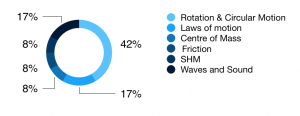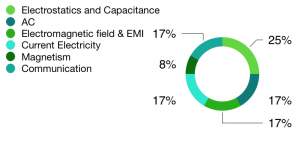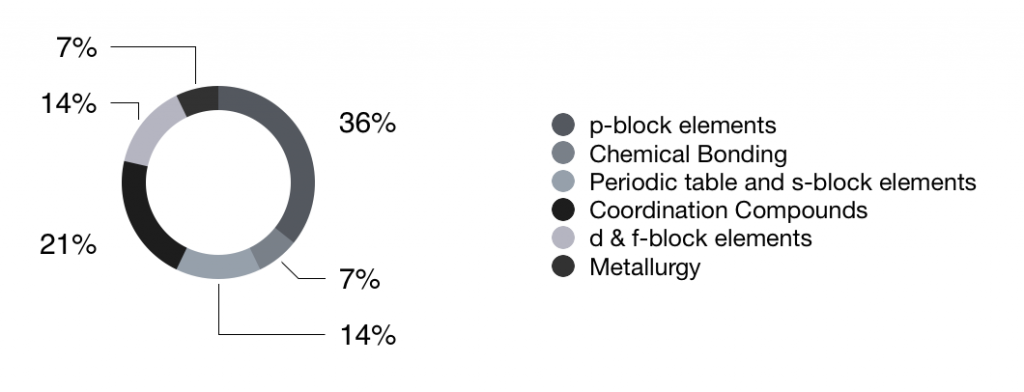The National Eligibility cum Entrance Test is an important examination for those who wish to pursue medicine in India. NEET can help you secure seats in various prestigious medical colleges in the country. Lakhs of students write it each year, but not everyone gets a seat in the college of their choice. Read on to find out more about the syllabus, important dates, and tips and tricks.
As of 2017, there were reported to be 10.41 lakh allopathic doctors in India who had registered with National or State level Medical Councils. Being in a stream like medicine requires high quality training and experience before foraying into a clinic/hospital. As such, people in India turn to AIIMS, JIPMER, and other well-established institutes in order to become expert professionals.
To pursue medical studies in India, students must clear the National Eligibility cum Entrance Test (NEET). This is true for Undergraduate Studies (NEET-UG) and even Postgraduate (NEET-PG). Medicine has always been considered a noble profession. The number of people applying to enter this field has been increasing lately. For example, NEET saw approx 24 lakh applicants this year, which is almost 15% more than the previous run.

Important Dates:
In 2020, NTA will conduct NEET on May 3rd.
NEET 2020 Result: 4 Jun 2020
Post the result display, counselling will begin. Students can apply for seats in the colleges of their choice, which they may get seats in depending on their rank.
PATTERN:
NEET-UG is a 3 hour-long paper, with about 180 questions: 45 each from Physics and Chemistry, 45 for Zoology, and 45 from Botany. All of these are Multiple Option Single Correct questions.
Mode: Pen and Paper (there are no online examinations for NEET-UG).
Exam languages: Hindi, English, Tamil, Urdu, Kannada, Assamese, Marathi, Guajarati, Bengali, Oriya, and Telugu.
Marking: +4, -1
Each right answer gives you 4 marks, while each wrong answer deducts 1 mark from the existing score (negative marking). However, there is no change in marks for an unanswered question.
SYLLABUS
NEET’s syllabus is based on the 11th and 12th CBSE curriculum for Physics, Chemistry, and Biology. Biology is broken down into Botany and Zoology. Each of the 4 sections has an equal weight age in the paper.
Let’s break down the marks distribution based on the analysis of a few papers from previous years:
PHYSICS

These are the 6 broad classifications of physics concepts. We clearly see that more than 50% of the paper is Mechanics, Electricity, and Magnetism. However, the rest of the concepts seem evenly distributed. Let us break these domains down further based on topics:
1. Mechanics

Here we see that Rotation and Laws of motion, Rectilinear motion, COM, and Waves. get the most emphasis in Mechanics. These are extremely difficult topics, with extensive application based questions that will test your knowledge.
2. Electricity and Magnetism

Nearly every topic in Electricity and Magnetism is a must. It is advisable to tackle this chapter of Physics first, before any other topic.
3. Optics, Thermal Physics, Modern Physics

Here, the top chapters are Modern Physics, Thermodynamics, and Optics. Semi-conductors is a theory based chapter with few numerical questions, while others are considered easier and less voluminous.
CHEMISTRY

Chemistry has 3 facets: Organic, Inorganic, and Physical Chemistry. All of these are balanced in the NEET papers. Let us break these down further:
1. Organic Chemistry

Organic chemistry is very voluminous and tough to understand. Important chapters are Alcohols, Phenols, Ethers, Aldehydes, Ketones, Carboxylic Acids, and Biomolecules & Polymers. Do not leave out Environmental Chemistry.
2. Inorganic Chemistry

The chapter on p-block elements is the largest and most important chapter of this section. Be sure to clear that, along with Coordination Compounds and Chemical Bonding. These are the heavyweights of inorganic chemistry.
3. Physical Chemistry

Physical chemistry shares a couple of chapters that are similar to Physics. They are: Thermodynamics and Gas state, as well as Nuclear Physics/Chemistry concepts. Focus on the Mole concept, Redox reactions and Electrochemistry based chapters.
BOTANY

Botany has a whole section to itself, with the most important chapters being Genetics, Ecology, Plant Physiology and Reproduction.
ZOOLOGY

Human Physiology, Reproduction, Classification, and Biology in Human Warfare are the most important chapters in this subsection.
HOW TO PREPARE:
Analyse the syllabus:
Know the tentative dates of your examination. Analyse the syllabus to see which chapters you can complete with the time you have.
Set an exam schedule:
Set up a timetable, including as many important chapters as possible that you must complete. If you do have time, please do try and include every single chapter, especially with Botany and Zoology.
Get extra help:
Studying for NEET is extremely stressful. As a result, many people turn to online coaching platforms to supplement their college education. giving them the boost they need to succeed. Edureify is one such platform that provides material on each topic, mock exams, tuition and overall assistance to NEET aspirants. It is one of the top online coaching institutions for NEET-UG. Edureify provides a topic-wise set of questions that are tailored to the exam you choose to appear for.
Edureify (edureify.com) solving sets are designed in levels of increasing difficulty so as to your preparation. In addition to this, be sure to participate in the game-quizzes and AIR challenges that are full of higher-order-thinking questions, mirroring the real NEET-UG examination. Edureify even allows you to test yourself based on various parameters: Concept Analysis, and Speed Analysis. Both are important to succeed in a test like NEET-UG.
The recommendation is to get your Concept Analysis to a level you’re happy with, and then Speed Analysis- do not forget that JEE has negative marking, so strong concepts triumph over the speed of solving.
FEW IMPORTANT TIPS:
- Do not use your mobile phone/laptop/TV/iPod, etc while studying, as it can cause major distractions.
- Get a good night’s rest the day before the exam. Try not to study anything new 24 hours prior to the exam. Just revise what you already know to strengthen your concepts.
- Reach the exam venue at least 1 hour prior to exam start time just in case there may be traffic or any other logistical issues. DO NOT ARRIVE LATE UNDER ANY CIRCUMSTANCES.
- Try to be cool and calm during the test.
- If you do not know the answer, do not guess unless there is no negative marking for the particular section you are attempting.
If you keep all these points in mind and prepare ahead of time, you are sure to do well. Remember, you can accomplish any goal with hard work and perseverance. Good luck to all NEET aspirants!
Master Your Coding Skills with BootSelf AI
If you're looking to enhance your coding abilities and upskill in artificial intelligence, look no further than the BootSelf AI app. This innovative platform provides AI-based coding lessons that are tailored to your individual learning pace.
Available on both iOS and Android, you can download the BootSelf AI app and start mastering coding skills today:




